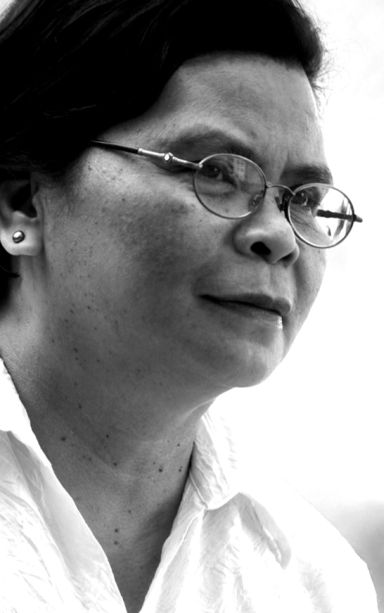
DELACERNA
Going over reading materials for the Lenten season, Megan McKenna’s “Not Counting Women and Children. Neglected Stories from the Bible” caught my interest. The main story was on the feeding of thousands, from the Gospel of Matthew with the last line, “…Those who ate were about five thousand, not counting women and children.” People react to that phrase in different ways – some with laughter, others with anger, sadness or disgust. Especially when read aloud, “that phrase hangs suspended in the air, like a bait on a hook for a fish.”
The author thinks that the group which is the core of the story, the core of experience, the specific group that is mentioned — women and children — not the one that is left out. We have missed these points all these years in reading the stories for ourselves and in the community because we have been reading them from our own perspectives of dominant cultures, races, beliefs, and assumptions.
Who was counted? Who made up the five thousand? Today when crowds are counted who’s considered important, who’s included? Even in the census there are thousands of people who are not counted: illegals, the poor, those who can’t read, those who do not belong to a verifiable group, the homeless, those with no insurance, no social security numbers, all those who fall through the cracks of society.
The text says “not counting women and children,” but we can’t assume that means literally women and children; it also means the sick, the elderly, the prostitutes, lepers, tax collectors, the unacceptables, the strangers, Gentiles, the outcasts within Jewish society. It means, in fact, the bulk of the crowd, the majority of the throng of people who are the followers of Jesus, desperately in need of good news, of curing, and of being fed and given attention, love, dignity, understanding, and hope for the future.
The numbers of those not counted in our church include all those who don’t come but are baptized, those who come intermittently or when they are in desperate need, the separated and divorced, the gay and lesbian, the sick and terminally ill, the old and the poor, the illiterate, the unemployed, those unable to drive, those who work when we schedule events, those who are considered not acceptable for whatever reason (wrong religion, weakness, sin, addictions, associations with others, all those we don’t want to be caught with — in a crowd, at a dinner party or in church).
Sometimes we don’t even like to go to certain liturgies or parishes or be associated with groups of religious people — because we don’t want to be categorized as one of them. Them -— the uncounted, the unnoticed, the unacceptable, the unwanted, the problems, the masses of people in the world — that is what the story is about, that is what Jesus is about, that is what liturgy and ministry is all about.
Everybody present ate. There was enough for everyone’s need. Not only that: “The fragments remaining, when gathered up, filled twelve baskets.” Ah, yes, the baskets — where did they come from? The women and children, the poor who carried them (with the food). The disciples have two jobs in this story — they distribute the food and they collect the leftovers — twelve baskets full. Twelve symbolic of the twelve disciples — or the whole world – more than enough to feed everyone. Miracle? What is the greater miracle — that Jesus multiplies food unnaturally or that the people see, trust, risk, hope, and share with one another? After all, this is the pattern, the ritual of liturgy.
Our tasks are simple and concrete: we are to learn to pity one another, even in the face of violence, political events, and our personal griefs.
Discipleship is also about risk, about letting go and giving over what we have in behalf of others’ needs, about sharing and being the first to move toward others and about giving generously and then blessing the gifts. It is about remembering to pick up the leftovers so that they don’t go to waste.
Once again, we consider the phrase “women and children,” probably instinctively thinking “just women and children.” The crowds that followed Jesus included women and children and others “not counted” — the sick, elderly handicapped, disabled, all the people in a society that are not making it — and they are always the majority of the people. So when we begin to look at priorities in church, in budgets, in ethical decisions, in politics and programs, we must not start with the five thousand who make sure they are counted, heard from and included, the ones who are clearly visible in society or church. Rather we must look to the vast majority not counted and not numbered and not included and not remembered.
The women and the children, the poor, those not counted are those who endure. These are the majority of a culture, a people, a nation, and of the world. And oftentimes they endure gracefully. How we care for the vast throngs, for the poorest in our midst is our criterion for faithfulness as well.
Disclaimer: The comments uploaded on this site do not necessarily represent or reflect the views of management and owner of Cebudailynews. We reserve the right to exclude comments that we deem to be inconsistent with our editorial standards.




